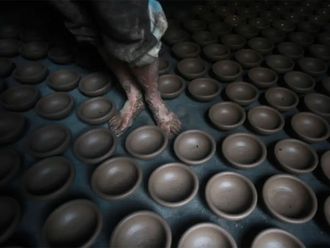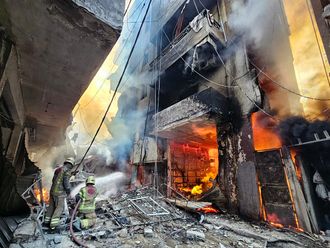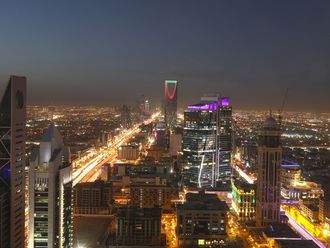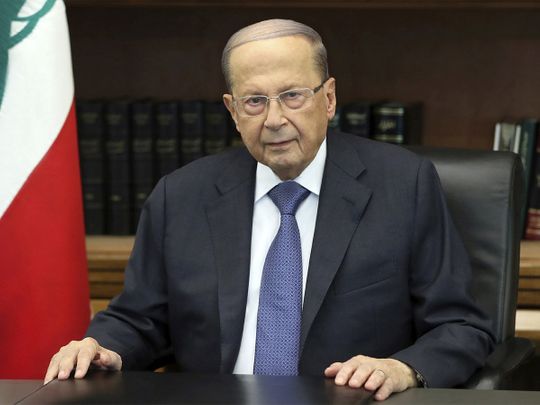
Beirut: Lebanese Prime Minister Najib Mikati is heading towards a slight reshuffle of his current caretaker government, instead of a complete revamp. According to political sources in Beirut who spoke to Gulf News, an announcement is expected before the end of this month, four weeks before the term of President Michel Aoun comes to an end on October 31.
And it would coincide with Parliament Speaker Nabih Berri’s call for a session to elect a new president, tentatively scheduled for Thursday, September 29.
All sides — with the exception of Aoun’s Free Patriotic Movement (FPM) — are now seemingly in a hurry to form a government, fearing that he might use any executive vacuum to force an extension of his presidential term beyond October.
According to the Lebanese Constitution, a new president cannot be sworn-in unless there is a full-fledge government that has been approved by the chamber of deputies. The Mikati government, as it stands since May 2022, is in caretaker capacity, and therefore, constitutionally unable to supervise the presidential elections on Thursday.
The session will be held at 11am, the state-run National News Agency reported.
The votes of two-thirds of lawmakers in the 128-member legislature are required for a candidate to be sucessful in the first round of voting, after which a simple majority suffices.
Aoun came to power after a 29-month presidential vacuum in which parliament was unable to agree on electing a president.
Aoun’s clam to the Ministry of Economy
To keep Mikati in caretaker mode, the FPM have been throwing one hurdle after the next in his direction, making sure that no cabinet is formed between now and October. They are making claims to portfolios that were never under their command, and are impossible to relinquish by their current occupants, like the Ministry of Economy, presently held by Amin Salam, a member of Mikati’s Azm Movement.
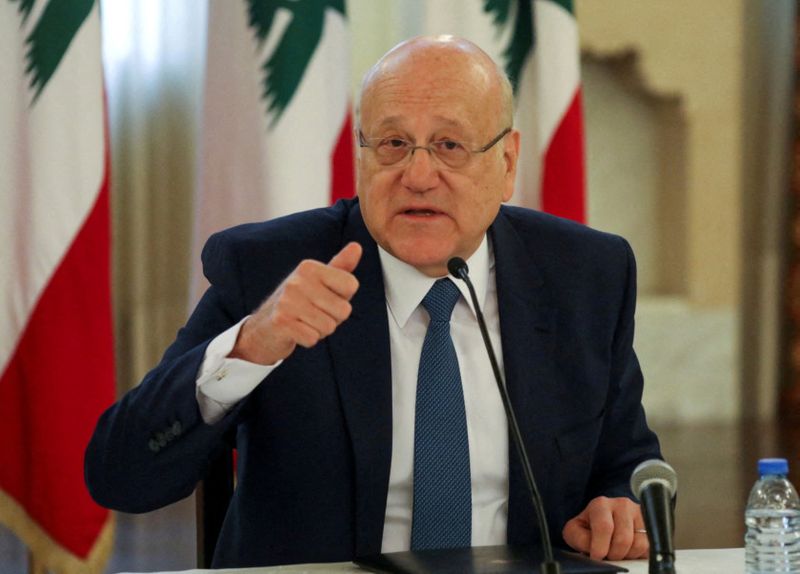
Mikati refuses to hand over the post to the FPM, insisting the Aounists are already represented with powerful portfolios like the Ministry of Energy, which expected to play a vital role in the period, when/if Lebanon signs a deal over demarcation of its maritime borders with Israel and starts drilling for oil.
Aoun is saying that he will only abandon the Ministry of Economy if he gets the Ministry of Interior in return. That ministry has traditionally been held by a Sunni, and its current occupant Bassam Mawlawi is also a representative of Mikati’s Azm Movement.
Last minute suggestion
More recently, Aoun has suggested adding six new seats to the government, expanding it from 24 to 30 cabinet ministers. They would be ministries of state with no portfolio, he added, saying that one would be named by the twin Shiite parties Hezbollah and Amal, one by Druze leader Walid Jumblatt, and one by Mikati, while three of the six would be named by the FPM.
Aoun already controls the strategic ministries of defence, foreign affairs, social affairs, energy, and tourism, in addition to now making claim to the Ministry of Economy. His allies in the Syrian Social Nationalist Party control the post of deputy prime minister while another protégé, Issam Sharaf Al Deen, serves as Minister of the Displaced. If they get three additional seats, as Aoun is suggesting, then that would raise their share to 10 out of 30 portfolios.
This is Aoun’s scheme at controlling the executive branch once he leaves the Presidential Palace. His proposal makes no mention of his Christian rivals in the Lebanese Forces (LF), who are also entitled to be government representation, given that they control a string parliamentary bloc of 19 MPs. The LF leader Samir Gagegea is categorically opposed to extension of Aoun’s term, or to the election of his son-in-law, Gibran Bassil, as president.
For his part, Bassil had made his parties participation in the fourth Mikati cabinet conditional on maintaining all of the FPM’s current seats, adding new ones, and supporting his bid for the Lebanese presidency.
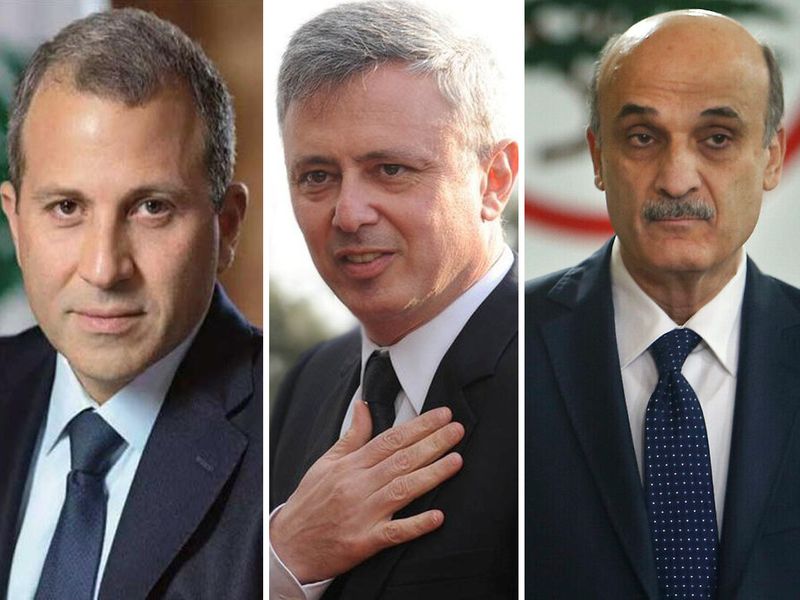
Hezbollah’s position
Hezbollah is willing to support Bassil on his first request, but remains committed to its ally Suleiman Frangieh for president. They have made it clear to Mikati that they will support him in any proposed cabinet line-up while dropping all preconditions and adding that they would also not mind keeping the Mikati cabinet in its present composition—in clear defiance of Gibran Bassil.
The party is already under major scrutiny for the dire economic conditions of Lebanon, for which they are to blame, given that they were the ones who brought Aoun to power back in 2016. They are trying to come across as moderates in the cabinet formation process, rather than saboteurs, realizing that whatever the final composition will be, they will always be represented with two seats, and so will their allies in the Amal Movement, who presently control the ministries of finance and agriculture.
Collectively, the two Shiite parties also control a total of 34 seats in Parliament.




